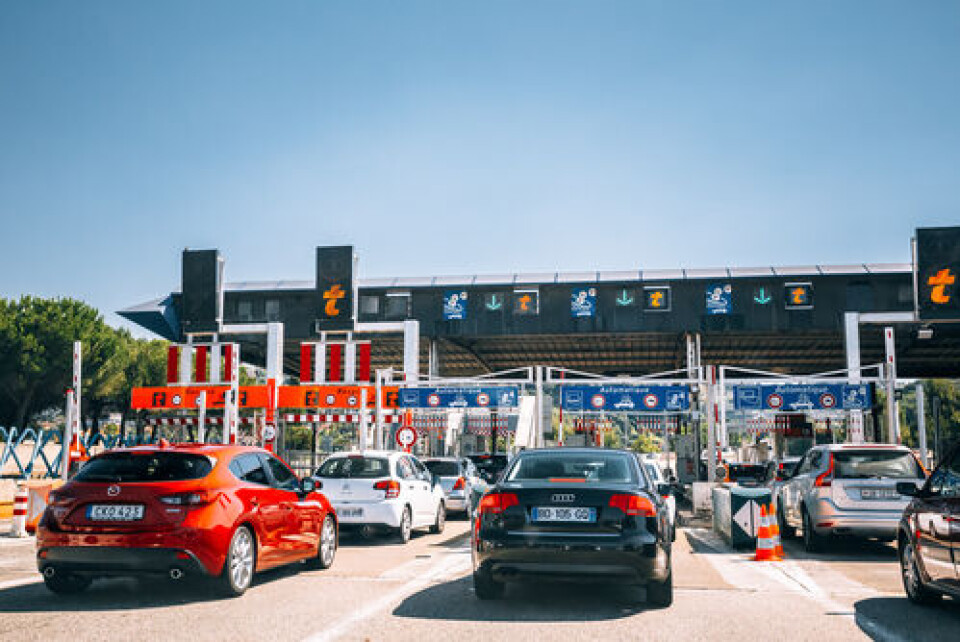-
Transavia to replace Air France for Nice-Orly flights
Up to eight return journeys a day to be offered by the budget carrier
-
EES: Airports and airlines call for immediate review ahead of summer traffic
Warnings of four-hour delays during peak season as industry leaders ask for extended suspension period
-
Ryanair brings back Brive-Stansted service for summer 2026
Route was one of several axed last winter
Car plate recognition replacing France’s ‘slow’ motorway toll barriers
An 88km stretch in central France is the first to be permanently equipped with a new ‘freeflow’ system

A busy 88kms of motorway has become péage barrier-free for the first time in France to avoid traffic slowdown.
Tolls are still due and work via overhead equipment recording vehicle numberplates. The time and date are also recorded but not the vehicle’s speed.
Payment is then taken by direct debit for télépéage badge driver or made in advance or within three days at aliae.com.
There are also payment terminals at motorway services. Late payment incurs a fine of €90, rising to €375 after 60 days.
Read more: Fine for not paying at toll gates in France rises to €375
The change covers 88km of the A79 from Sazeret (Allier) to Digoin (Saône-et-Loire) in central France, a busy east-west route linking the German, Swiss and Italian borders to the Atlantic coast.
Read more: First barrier-free paying motorway to open in France today
Read more: France’s first barrierless péage: what penalty for forgetting to pay?
The change by APRR, which manages most of the A79, follows on from trials by another management firm Sanef.
Sanef plans to start putting in place a system along the 210km A13 from Paris and Normandy next year, to be operational in 2024.
Other toll motorways due to introduce this so-called flux libre system include the A14 (west of Paris), the A69 (opening in 2024) between Toulouse and Castres, and the A40 in Haute-Savoie.
Will cut congestion, fuel costs and Co2 emissions
A Sanef spokeswoman said: “Drivers will no longer have to stop, which causes congestion around péages, especially on the A13 where there are five big péage barriers and there can be big jams on weekends and holiday periods”.
“There will also be fuel savings and fewer Co2 emissions”.
“We’ve had around seven million cars through the péages in our trial and more than 90% of drivers have paid up on time, so we’re confident it will work.”
The firm will have access to EU numberplate databases to chase up non-payment.
UK numberplates not included
The UK is not included in this.
The spokeswoman said: “It’s true it would be more complicated since the UK is not in the EU but we would expect drivers to follow the rules, as most did during the tests.”
She added: “The motorway signage, our website and app will provide information in several languages, and our telephone agents can too.
Foreign drivers have the same rights and obligations as everyone else and British drivers will, like others, have the option of paying online.
“After a learning phase and with information provided in advance, users have understood the payment methods and the payment timing period.”
Some commentators have raised concerns that motorway firms will raise their fees to cover the cost of the new equipment but Sanef ’s spokeswoman said this would be minimal.
Sanef budgeted for a small increase in tariffs to help pay for the installations – 0.22% a year for three years from February this year – but it has otherwise identified other ways to fund the work.
An APRR spokeswoman said their systems would not involve increases to fees, as they had planned for them since the motorway was built.
She added: “After the first weeks we are very satisfied with how it has gone; the system meets our expectations. Already more than 200,000 vehicles have used it without a hitch.”
Related articles
French motorway network announces freeze on most short-trip toll costs
Motorways tolls in France set to rise: what can drivers expect in 2023
France rules out reducing motorway speed from 130km/h to 110km/h
























